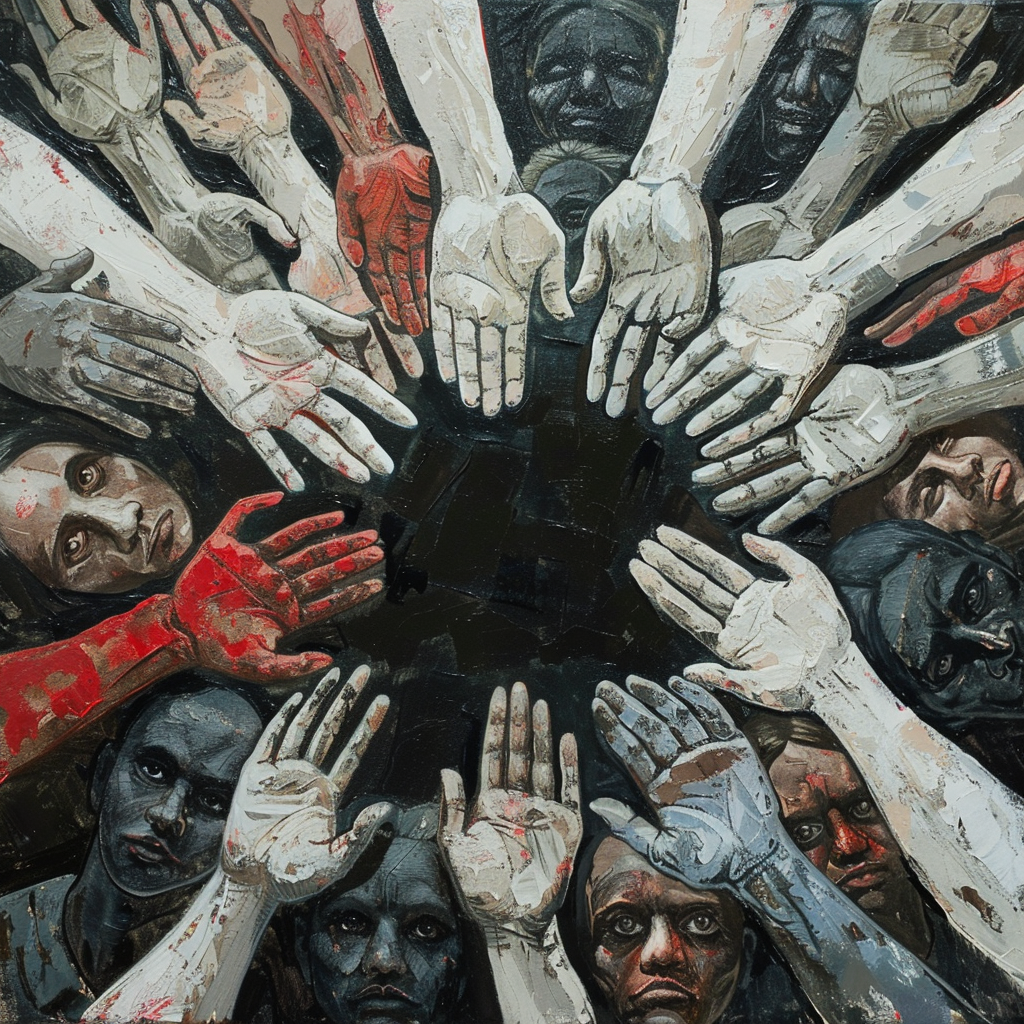While many scientists and philosophers agree that human selfishness increases the chances of survival, we discuss why altruism prevails in human groups and how group selection theory can explain it. They argue that altruism increases the survivability of groups through loyalty and cooperation, and that it also plays an important role in modern societies through culture and social regulation.
Many scientists and philosophers agree that human selfishness contributes more to survival than altruism. If selfishness is an important factor for survival, then human society should be dominated by selfishness. However, altruism still exists in human societies today, and sometimes it tends to prevail over selfishness. So how has this altruistic trait managed to survive within human groups when it is detrimental to individual survival? We can look at this question from a different perspective and solve it by understanding the group selection hypothesis.
Group selection theory refers to the process by which a group’s survival depends on what traits it possesses, or how many people with a trait it possesses, which in turn determines whether the trait will spread throughout the population or disappear. In other words, group selection theory applies to groups, not individuals. For example, in a primitive tribal society where intergroup fights were common, suppose a war broke out between a loyal and cooperative tribe, A, and a less loyal and cooperative tribe, B. In this case, A would win against B. The group with the altruistic trait would win. This is because groups with altruistic traits have stronger internal cohesion and are better able to respond to external threats.

There are three reasons to suspect that this process of group selection for altruism in humans has been significant in human history. First, a group with a large number of altruistic individuals is more likely to win a conflict in the first place. Groups that have many loyal, brave, and compassionate individuals within their tribe who are always ready to help others and willing to sacrifice for the common good are more likely to survive the selection process than those that do not. Second, for primitive tribes before humans entered agricultural societies, hunting was an essential means of sustenance, and the success of the hunt ultimately depended on the selfless cooperation of the participants. Third, the human race as we know it today has survived many harsh environments in the past, requiring many acts of cooperation and caring within the group, such as keeping dwellings safe from natural disasters or protecting villages.
Another important reason altruism has contributed to human survival and prosperity is the development of culture. Cooperation and caring allowed for the development of social structures and technologies beyond mere survival. For example, the development of agricultural societies could not have been accomplished by individuals alone. The development of complex means of communication, such as language, is also based on altruistic behavior. By understanding each other’s intentions and cooperating, humans were able to form complex social structures, which became the basis of human civilization.
Collective choice theory doesn’t just apply to human societies of the past. Altruistic behavior still plays an important role in modern society. For example, in modern business organizations and communities, altruistic behavior can increase organizational efficiency and cohesion. Projects that rely on cooperation and mutual support have a higher chance of success, especially when altruism is practiced. This shows that collective choice theory is valid in the modern world.
However, there are two limitations to the theory of collective choice. The first is the difference between the direction of collective and individual choice. If we look at human altruism from an individual perspective, altruistic individuals are much more likely to die out than selfish individuals, whereas if we look at it from a group perspective, a group with many altruistic individuals is likely to grow much faster. The second reason is that the process of group selection erases differences between groups. Before group selection occurs, differences between groups are essential. However, when selfish groups are absorbed by altruistic groups over a long period of time, the differences between groups will likely disappear and group selection will no longer occur.
The current theory of group selection is able to overcome its limitations because humans have social institutions that animals do not, and because we all live in different environments and cultures, it is very unlikely that all group differences will be erased. It helps philosophers and scientists explain the evolution of our altruistic behavior. Altruism is at the root of humanity’s moral and ethical value system, which is institutionalized in various forms, including laws, education, and social norms. Therefore, altruism is essential not only for the survival of individuals, but also for the well-being and development of society as a whole. I believe that the group selection hypothesis can help solve many questions about the survival of human altruism and provide a different perspective on human development in the future.
